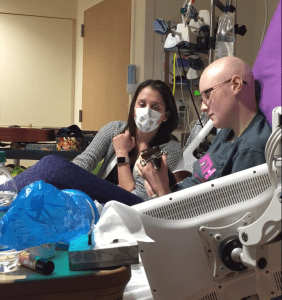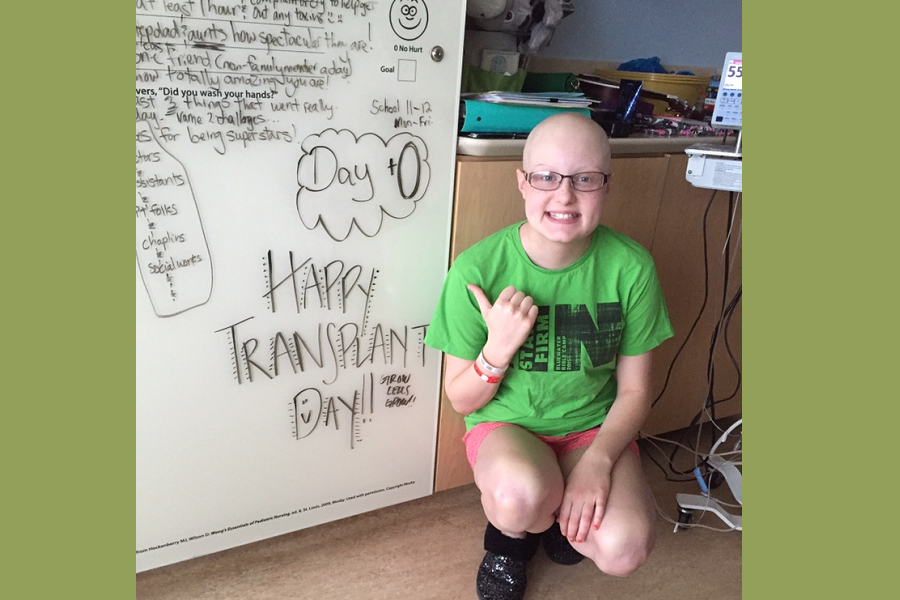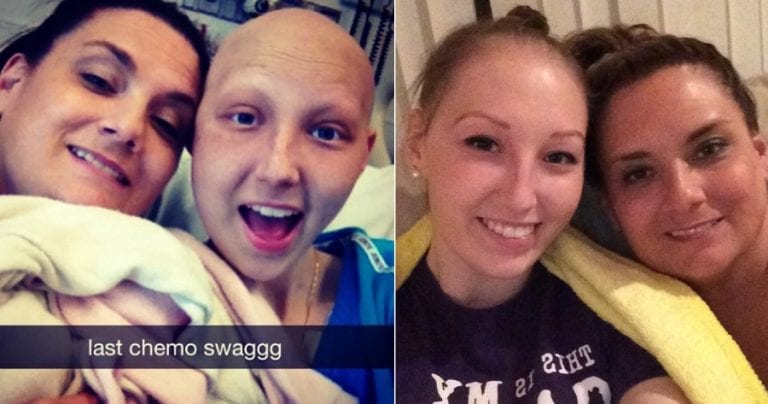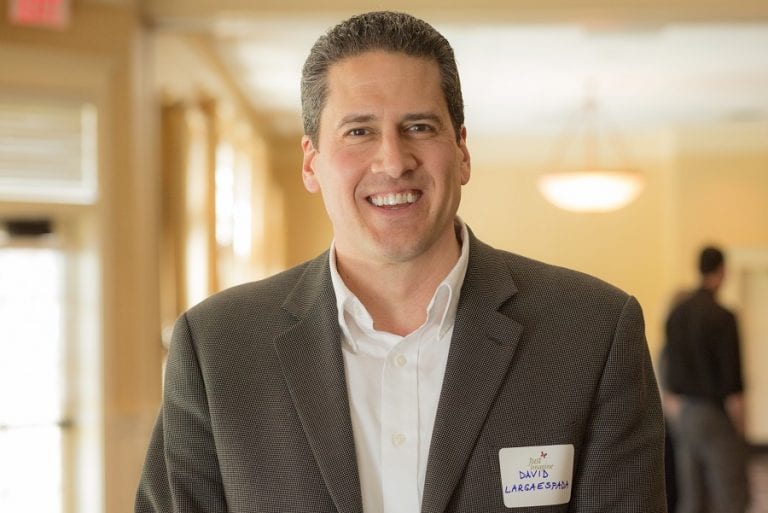Seventeen-year-old Gracie has always been an athlete – her coaches and teammates recognized her as a hard worker, and she was usually among the first to finish the difficult running drills that kept her in shape to play basketball. But when she started slipping from the front of the pack to trailing her teammates, she had an inkling that something bigger might be at play.
“At first I was worried that I was just out of shape, so I kept pushing myself,” Gracie said. “But then I was having a hard time catching my breath during games, and I was wearing out really quickly, which didn’t feel normal.”
When she developed a golf-ball-sized lump on the side of her neck, she thought it was time to see her doctor, who told her it was likely just a virus, but to keep an eye on it in case anything changed. Three days later, she had two golf-ball-sized bumps on the other side of her neck. Not long after, she was diagnosed with Hodgkin’s lymphoma.
What came next was a roller coaster of difficult treatments, procedures, good news and bad news. Gracie started treatment right away, undergoing multiple rounds of chemotherapy and radiation and taking oral chemo pills regularly. It appeared the treatment was working and she was declared in remission, until a devastating relapse sent her back to the starting line.
It became clear that Gracie’s best option to beat her cancer was a stem cell transplant, an often risky procedure that would keep her in the hospital for months to recover. This meant months away from her friends and her usual activities, feeling sick and knowing a long road to recovery was ahead.
Just before this daunting procedure, Gracie met Greta, a music therapist at the University of Minnesota. Greta told Gracie that she could try a music therapy session, just to see if she’d be interested. Children’s Cancer Research Fund helps provide funding for the music therapy program, which is laying the groundwork for future expansion.
“I figured I’d give it a shot,” Gracie said. “I have a music background and I play a few instruments, but I typically don’t like to play in front of other people because it makes me nervous. But I tried it out anyways.”
The first time Greta visited Gracie, she brought a ukulele, an instrument Gracie had been hoping to learn for a long time. Greta taught Gracie a few beginner chords, and in almost no time, she was hooked. Despite the exhaustion and nausea that Gracie battled after her transplant, she practiced her three chords until blisters formed on her fingers.
“When you’re recovering from a transplant, they are very careful about any ways you can get an infection, because you have no immune system at all,” Gracie said. “With just those three chords, I played so much over the weekend that my ukulele had to be taken away because they wanted my fingers to heal.”
It’s hard for Gracie to explain how exactly music therapy helped her through her long hospital stay, but she knows for sure that it did. Some days, she was so sick that she couldn’t get out of the bed and walk to the couch without vomiting, so she mostly stayed in bed – unless Greta was there.

Greta teaching Gracie new chords on the ukulele as she recovers from stem cell transplant.
“For some reason, I would completely forget I was sick for the hour that she was there,” Gracie said. “She would make little deals with me – like if I got out of bed and walked to the couch, she would teach me a new chord. Even just getting out of bed was a huge deal for me. I don’t think I ever got sick while Greta was there, and I felt sick every day for months.”
Gracie says the incredible benefits of music therapy didn’t end when she left the hospital – she uses the songs she learned on the ukulele to escape when she’s sad or not feeling well. She remembers how it helped her get out of bed when she was feeling her worst. Even today, music helps her look on the bright side even in moments that seem dark. She even wrote an essay about how much music therapy helped her, called ‘Listen to the Healing Happen,’ which recently won her local Rotary Club’s annual essay contest.
Today, Gracie is in remission and busy preparing her college applications. Her grades are great and she’s keeping her options open, but she’s seriously considering attending the University of Minnesota, possibly to become a music therapist herself.
“It sounds crazy, but my time at the U of M was such a positive experience for me and I loved my time with Greta so much that I’ve been thinking about music therapy as a profession,” Gracie said. “Greta helped me so much, and I want to do that for other people.”
As she moves forward from her time fighting cancer, Gracie looks back with an emotion some may think is a strange for someone in her situation: thankfulness.
“Everyone laughs when I say this, but I think if I could go back, I would not change a single thing,” she said. “It doesn’t mean I didn’t struggle, but I’m thankful for the people I’ve met and the experience I learned, like how to advocate for myself, or how to look for the positives in a dark situation. I’m thankful for cancer because it changed me in a positive way.”
Support Programs for Kids Fighting Cancer
Your gift to Children’s Cancer Research Fund supports programs like music therapy and other integrative therapies that make tough days easier for kids fighting cancer.




